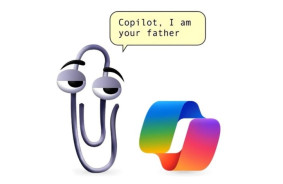Currently, large corporations are investing significant resources in generative artificial intelligence and models like ChatGPT. A new study from the Reuters Institute and the University of Oxford shows that very few people actually use artificial intelligence, despite the tremendous hype surrounding this technology.
An online survey of 12,000 people in six countries (Argentina, Denmark, France, Japan, United Kingdom, United States) focused on understanding whether people use generative artificial intelligence and what they think about its application in journalism and other areas. Below are some of its findings.
- ChatGPT is the most recognized generative AI - about 50% of respondents have heard of it. It is also the most common generative artificial intelligence tool in the six countries. However, only 1% use ChatGPT daily in Japan, 2% in France and the United Kingdom, and 7% in the United States. Many of those who claim to have used it did so only once or twice.
- Although there is broad awareness of generative AI overall, 20% to 30% of people have not heard of any of the most popular AI tools. Young people more often use generative AI on a regular basis. On average across all six countries, 56% of people aged 18-24 have used ChatGPT at least once, compared to 16% of people aged 55 and older. 5% use generative AI to get the latest news.
- A significant portion of the public believes that journalists currently use generative AI to perform certain tasks. 43% believe that they always or often use it for editing spelling and grammar, 29% for writing headlines, and 27% for writing article text.
- Answering the question of whether news created mainly by artificial intelligence should be marked under human supervision, the vast majority of respondents want at least some disclosure or marking. Only 5% of our respondents claim that none of the listed use cases need to be disclosed. Approximately one-third believe that editing the spelling and grammar of an article (32%) and creating a headline (35%) should be marked, about half believe that writing the text of an article (47%) and data analysis (47%) are worthy of note.
- Most people expect generative artificial intelligence to have a significant impact on almost all areas of life in the next five years. From 51% expect a significant impact on politics, to 66% on the media and 66% on science.
Overall, most people expect generative artificial intelligence to improve life. When asked whether generative AI will make society as a whole better or worse, people were generally more pessimistic. Concerns about artificial intelligence are mainly focused on privacy and security.
Dr. Richard Fletcher, lead author of the report, told BBC, that there is a discrepancy between the hype around AI and public interest in it: "A significant portion of the population is not particularly interested in generative artificial intelligence".














Comments (0)
There are no comments for now